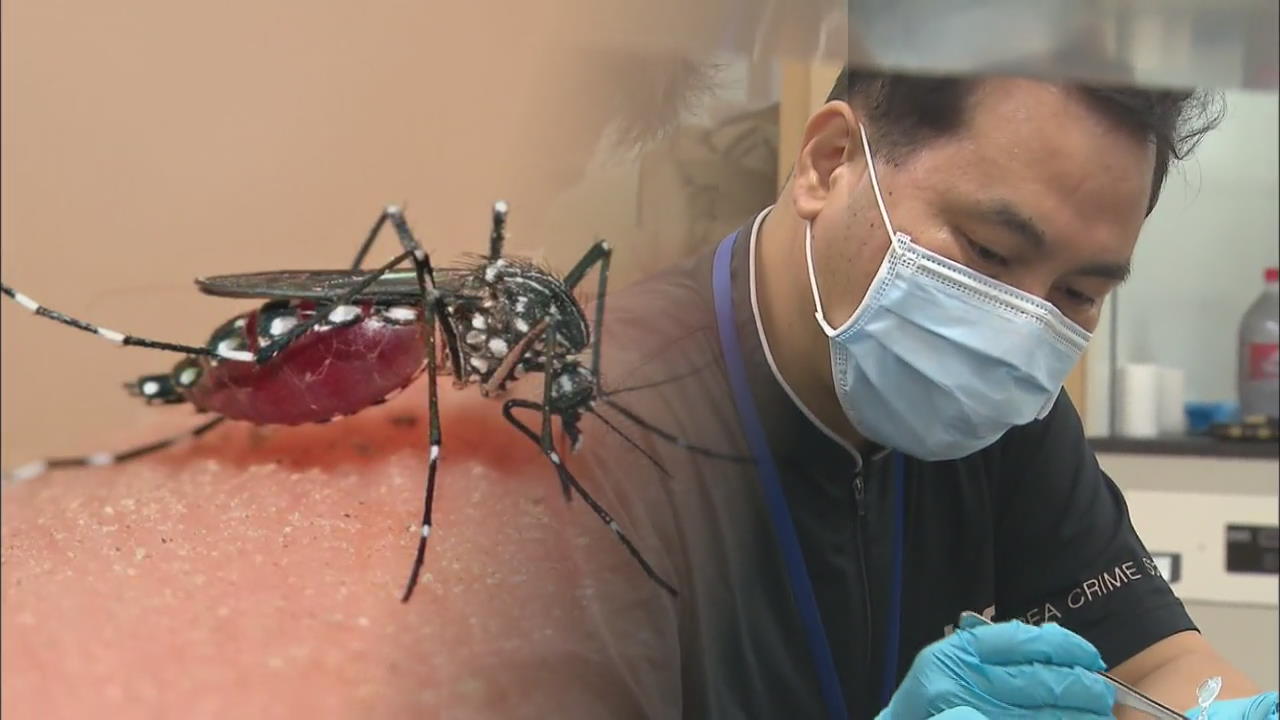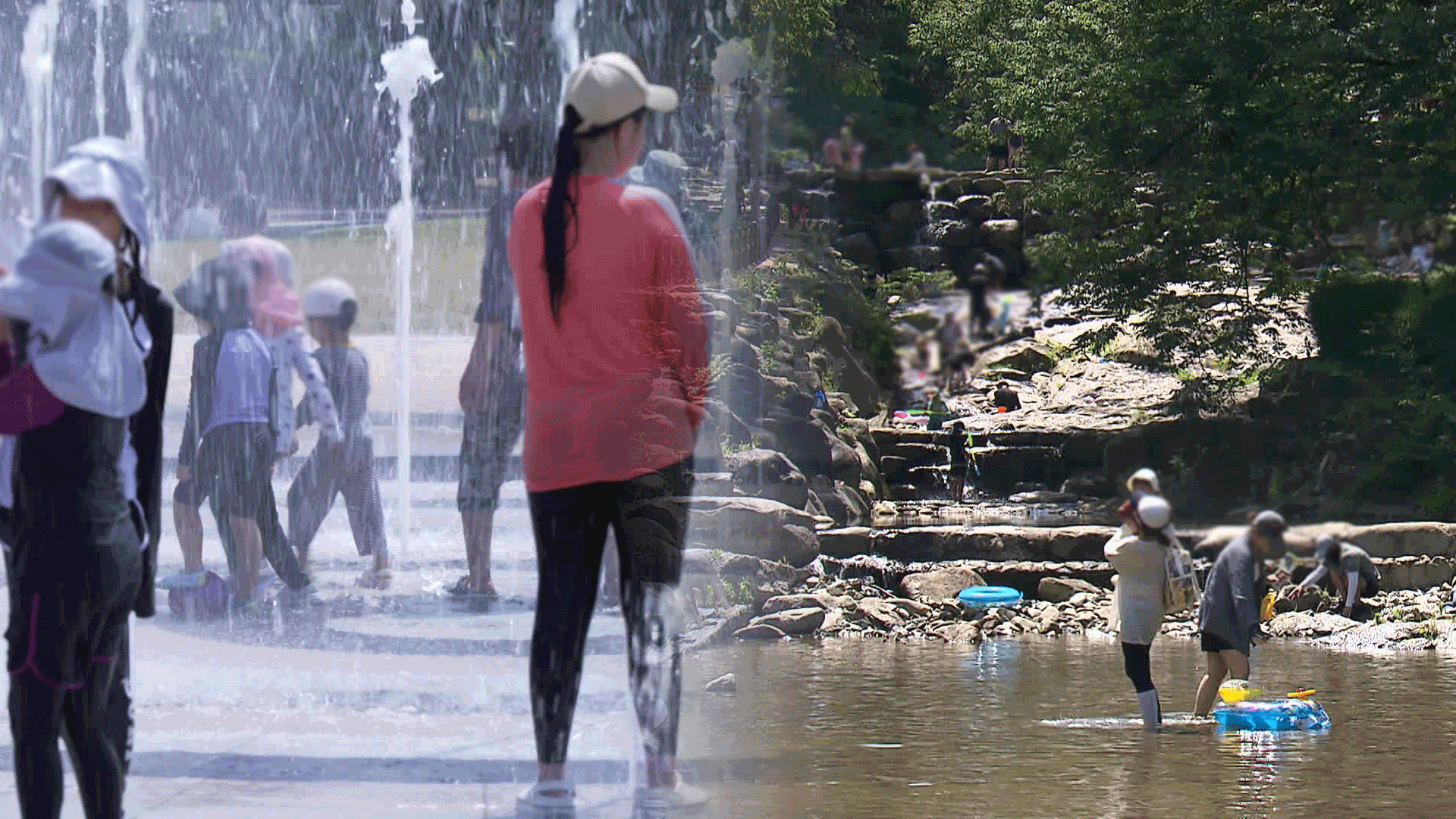Mosquitos & Crime
입력 2016.07.13 (14:26)
수정 2016.07.13 (15:16)
읽어주기 기능은 크롬기반의
브라우저에서만 사용하실 수 있습니다.
[Anchor Lead]
At a crime scene even a seemingly trivial clue can prove crucial to catching a perpetrator. The Korean police have discovered that mosquitos can play an important role in criminal investigation.
[Pkg]
Can a mosquito that has sucked on human blood provide a critical clue to solve a crime? The Gyeonggi Bukbu Provincial Police Agency found that it was possible to obtain DNA from the human blood collected from a mosquito. The results developed out of one police officer's curiosity.
[Soundbite] Kim Yeong-sam(Scientific Investigation Team, GBPPA) : "People often think that human blood is broken down by digestive enzymes in a mosquito's stomach. That's why we weren't able to think of using human DNA from a mosquito."
The study found that a mosquito that has fed heavily on blood will remain within 106.7 meters from the site of its feeding, and can fly only as far as 170 meters. This means that blood-sucking mosquitoes discovered within a certain range of a crime scene can provide evidence to identify a perpetrator. Given the latest study findings, the Gyeonggi Bukbu Provincial Police Agency has decided to adopt this investigative technique of analyzing human DNA collected from blood in mosquitoes.
At a crime scene even a seemingly trivial clue can prove crucial to catching a perpetrator. The Korean police have discovered that mosquitos can play an important role in criminal investigation.
[Pkg]
Can a mosquito that has sucked on human blood provide a critical clue to solve a crime? The Gyeonggi Bukbu Provincial Police Agency found that it was possible to obtain DNA from the human blood collected from a mosquito. The results developed out of one police officer's curiosity.
[Soundbite] Kim Yeong-sam(Scientific Investigation Team, GBPPA) : "People often think that human blood is broken down by digestive enzymes in a mosquito's stomach. That's why we weren't able to think of using human DNA from a mosquito."
The study found that a mosquito that has fed heavily on blood will remain within 106.7 meters from the site of its feeding, and can fly only as far as 170 meters. This means that blood-sucking mosquitoes discovered within a certain range of a crime scene can provide evidence to identify a perpetrator. Given the latest study findings, the Gyeonggi Bukbu Provincial Police Agency has decided to adopt this investigative technique of analyzing human DNA collected from blood in mosquitoes.
■ 제보하기
▷ 카카오톡 : 'KBS제보' 검색, 채널 추가
▷ 전화 : 02-781-1234, 4444
▷ 이메일 : kbs1234@kbs.co.kr
▷ 유튜브, 네이버, 카카오에서도 KBS뉴스를 구독해주세요!
- Mosquitos & Crime
-
- 입력 2016-07-13 14:27:25
- 수정2016-07-13 15:16:39

[Anchor Lead]
At a crime scene even a seemingly trivial clue can prove crucial to catching a perpetrator. The Korean police have discovered that mosquitos can play an important role in criminal investigation.
[Pkg]
Can a mosquito that has sucked on human blood provide a critical clue to solve a crime? The Gyeonggi Bukbu Provincial Police Agency found that it was possible to obtain DNA from the human blood collected from a mosquito. The results developed out of one police officer's curiosity.
[Soundbite] Kim Yeong-sam(Scientific Investigation Team, GBPPA) : "People often think that human blood is broken down by digestive enzymes in a mosquito's stomach. That's why we weren't able to think of using human DNA from a mosquito."
The study found that a mosquito that has fed heavily on blood will remain within 106.7 meters from the site of its feeding, and can fly only as far as 170 meters. This means that blood-sucking mosquitoes discovered within a certain range of a crime scene can provide evidence to identify a perpetrator. Given the latest study findings, the Gyeonggi Bukbu Provincial Police Agency has decided to adopt this investigative technique of analyzing human DNA collected from blood in mosquitoes.
At a crime scene even a seemingly trivial clue can prove crucial to catching a perpetrator. The Korean police have discovered that mosquitos can play an important role in criminal investigation.
[Pkg]
Can a mosquito that has sucked on human blood provide a critical clue to solve a crime? The Gyeonggi Bukbu Provincial Police Agency found that it was possible to obtain DNA from the human blood collected from a mosquito. The results developed out of one police officer's curiosity.
[Soundbite] Kim Yeong-sam(Scientific Investigation Team, GBPPA) : "People often think that human blood is broken down by digestive enzymes in a mosquito's stomach. That's why we weren't able to think of using human DNA from a mosquito."
The study found that a mosquito that has fed heavily on blood will remain within 106.7 meters from the site of its feeding, and can fly only as far as 170 meters. This means that blood-sucking mosquitoes discovered within a certain range of a crime scene can provide evidence to identify a perpetrator. Given the latest study findings, the Gyeonggi Bukbu Provincial Police Agency has decided to adopt this investigative technique of analyzing human DNA collected from blood in mosquitoes.
이 기사가 좋으셨다면
-
좋아요
0
-
응원해요
0
-
후속 원해요
0

















이 기사에 대한 의견을 남겨주세요.